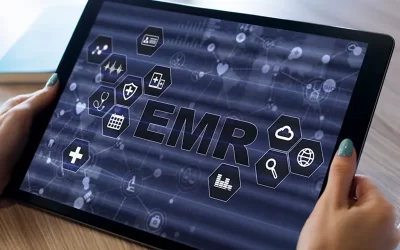A medical malpractice case arises when a doctor makes a mistake or does not perform in keeping with accepted standards, and as a result causes injury to the patient. Attorneys handling medical malpractice cases utilize medical review solutions to understand the medical aspects of the case. A detailed review of the injured person’s medical chart also helps the attorney determine the case’s legal validity. For the injured patient to recover damages, he/she must prove that the doctor did not fulfil (breached) his/her duty, and that breach caused harm to the patient. Typically, medical malpractice lawsuits are filed in connection with wrong diagnosis, hospital related infections, childbirth injuries and surgery errors among others. In this blog we highlight certain terms to know that are related to a medical malpractice claim.
- Collateral source rule: This rule states that the compensation granted to an injured person shall not be reduced by the amount of compensation available to him or her from their insurance company or other independent sources.
- Comparative negligence: It signifies comparing the degrees of fault among the responsible parties.
- Compensation: The monetary award the defendant has to pay the plaintiff or complainant to compensate for the mistake, damage or injury caused by the defendant’s actions or inaction.
- Civil complaint: It is the first pleading in a civil case filed by the plaintiff alleging the material facts and legal theories that support the plaintiff’s claim against the defendant.
- Claims-made insurance policy: This type of insurance protects the doctor from claims based on an incident that occurred and was reported while the policy was in effect.
- Contingency fee: This signifies the fee arrangement wherein the plaintiff and his/her attorney agree that the fees due to the attorney will be determined by the amount of compensation awarded to the plaintiff, if the plaintiff wins the case.
- Continuance: A delay of a scheduled session of a court.
- Damages: Monetary compensation claimed by the injured plaintiff who has experienced a loss or injury to his/her person, property or rights because of the negligence or unlawful conduct of the defendant.
- Disciplinary hearing: It is a hearing or professional review conducted by a state or federal administrative agency, licensing or regulatory authority responsible for regulating professional conduct.
- Error in treatment: An example would be not prescribing the correct drugs or therapy.
- Established customary standard of care: The degree of care and skill that the average qualified doctor would provide to a patient who sought medical care for similar symptoms, conditions and circumstances.
- Failure to diagnose: This medical malpractice scenario occurs when a doctor fails to make the correct diagnosis and causes serious damage or even death to patients who do not receive prompt and adequate medical care.
- Informed consent: The doctor must explain everything about the treatment to the patient, including all benefits and risks, before starting treatment. The patient must agree to the treatment, which is called “informed consent.”
- Judgment notwithstanding the verdict: It is a judgment entered by order of the court for one party, although there has been a jury verdict for the other party.
- Liability risk: This signifies liability loss or exposure where negligent acts may occur for which an organization could be held responsible. The act must be injury to or property damage of others and the insurance coverage for this type of risk is “third party insurance.”
- Vicarious liability: This is the legal theory under which patients often sue the doctor’s supervisors or the hospital.
- Statute of limitations: Just as in other personal injury lawsuits, there is a time limit within which patients must bring a case against their doctors. The opportunity for filing the case is gone if the time limit passes.
- Locum tenens: This is a healthcare provider serving as a temporary relief or substitute.
- Medical incident: It is used to refer to any error, act, or omission that occurred during the providing of professional services.
- Medical lien: It is the right of a hospital, physician or other healthcare provider to assert an interest in personal injury recoveries to the extent of the cost of the treatment or service given.
- Medical negligence: Failure of a physician or other medical provider to meet the standards of conduct for duties associated with the medical profession. These standards are based on what a reasonable person with the requisite knowledge and skills would/would not do.
- Mistrial: An erroneous invalid trial that cannot stand in law.
- Nursing malpractice: An intentional act or negligence committed by a member of the nursing profession that results in physical, cognitive, emotional, psychosocial or financial damage to a person in their care. It signifies a nursing professional’s failure to exercise the degree of care, skill, and prudence that a reasonable professional would under similar conditions.
- Nursing home malpractice: An intentional act or negligence committed by a nursing home professional, which causes injury to residents.
- Prescription error: This occurs when a patient doesn’t receive the appropriate medication, at the right dose at the right time. Such errors could prove dangerous to patients.
- Tail coverage: It is different from a standard insurance policy, and provides protection for medical malpractice claims that are reported after the doctor’s insurance policy expired or was cancelled.
- Wrongful death: A death that occurs because of another person’s malice, recklessness, or negligence.
Medical malpractice attorneys and the medical review companies that assist them will be knowledgeable in the above-mentioned terms and their implications. Physicians facing medical malpractice lawsuits as well as injured plaintiffs can benefit from the assistance of an experienced malpractice attorney who can provide them with the right guidance and counsel at the right time.




